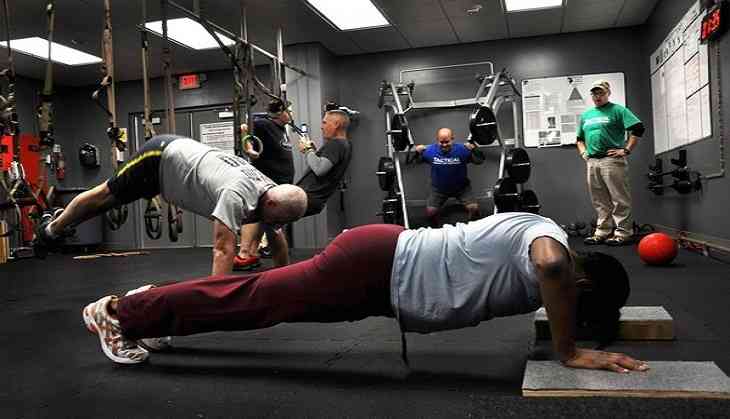
Engaging in high-intensity exercises for just 20 minutes may help enhance your memory and ward off dementia and Alzheimer's, finds a recent study.
According to researchers at the McMaster University in Hamilton in Ontario, six weeks of intense exercise -- short bouts of interval training over the course of 20 minutes - showed significant improvements in, what is known as, high-interference memory.
High-intensity exercises include: lunges, side lunges, butt kicks, high knees. The findings could have implications for an aging population, which is grappling with the growing problem of catastrophic diseases, such as dementia and Alzheimer's.
The results suggested that memory performance of the participants, who were all healthy young adults, increased over a relatively short period of time. "Improvements in this type of memory from exercise might help to explain the previously established link between aerobic exercise and better academic performance," explained lead author Jennifer Heisz.
Heisz added, "At the other end of our lifespan, as we reach our senior years, we might expect to see even greater benefits in individuals with memory impairment brought on by conditions such as dementia."
They also found that the participants who experienced greater fitness gains also experienced greater increases in brain-derived neurotrophic factor (BDNF), a protein that supports the growth, function and survival of brain cells.
The team examined 95 participants, who completed six weeks of exercise training, combined exercise and cognitive training or no training (the control group which did neither and remained sedentary). Both the exercise and combined training groups improved performance on a high-interference memory task, while the control group did not.
The results revealed a potential mechanism for how exercise and cognitive training may be changing the brain to support cognition, suggesting that the two work together through complementary pathways of the brain to improve high-interference memory. "One hypothesis is that we will see greater benefits for older adults given that this type of memory declines with age," Heisz noted.
The study was published in the Journal of Cognitive Neuroscience.
-ANI


